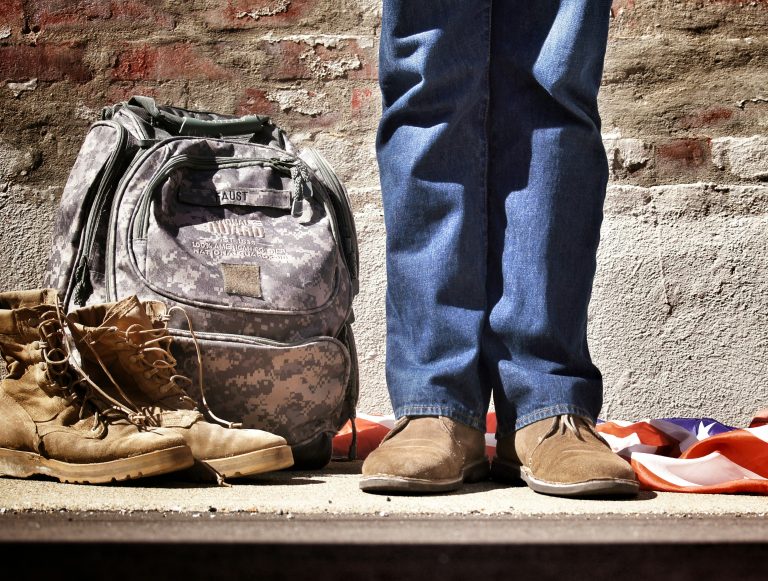Transition Assistance Programs
Navigating the transition from military service to civilian life can be challenging, but the Transition Assistance Program (TAP) is designed to make this process smoother and more manageable. This section provides an overview of TAP and highlights its importance in helping service members make the shift to civilian careers.
Overview of TAP
The Transition Assistance Program (TAP) is a comprehensive initiative mandated for all military members separating from active duty. It aims to provide you with the tools and resources needed to move from a military to a civilian lifestyle successfully.
Key Components of TAP:
- DoD Transition Day: Focuses on resilience, managing transitions, translating military skills to civilian careers, and financial literacy (Military.com).
- VA Briefing: Offers information on benefits and services available through the Department of Veterans Affairs.
- Department of Labor Employment Workshop: Provides vital information on job search techniques, resume writing, networking, and interviewing skills.
TAP also includes specialized career tracks to fit your unique goals:
| Career Track | Description |
|---|---|
| DOL Employment Track | In-depth guidance on finding employment in the civilian workforce |
| DOL Vocational Track | Vocational training options for new career skills |
| DoD Education Track | Information on pursuing higher education or certifications |
| Entrepreneurship Track | Assistance for those interested in starting their own business |
Service members are required to select at least one career track but are encouraged to attend multiple tracks as needed (Military.com).
Importance of TAP
The significance of TAP cannot be overstated, as it addresses numerous aspects crucial to a smooth transition. Here’s why TAP is essential for you:
- Skill Translation: TAP helps you translate military service on a resume and civilian careers, bridging the gap between military and civilian job markets.
- Emotional Support: The psychological challenges faced during the transition are acknowledged, aiding in addressing PTSD, anxiety, and mood issues (Journal of Veterans Studies).
- Family Dynamics: Assistance in understanding the changes in family roles and dynamics post-service.
- Comprehensive Preparation: From financial management to relocation assistance, TAP offers resources that cover various facets of civilian life.
Here’s a table summarizing why the program is beneficial:
| Benefit | Description |
|---|---|
| Employment Assistance | Helps in finding civilian jobs |
| Educational Guidance | Information on further education opportunities |
| Vocational Training | Resources for new skill acquisition |
| Psychological Support | Addresses mental health issues like PTSD |
| Financial Management | Offers guidance on managing personal finances post-service |
| Family Support | Helps in adjusting family dynamics |
TAP culminates in the Capstone event, a mandatory step completed at least 90 days before separation, where you demonstrate that all transition requirements have been met (Military.com).
Understanding the components and importance of TAP ensures that you are well-prepared for this significant life change. For more details on specific aspects, explore our articles on military transition assistance program and military to civilian skills translation.
Military Transition Challenges
Transitioning from military service to civilian life can present various challenges that may be difficult to navigate. Understanding these challenges can provide insights into the specific needs and support required during this period.
Common Issues Faced
Service members transitioning to civilian life often encounter several difficulties. These challenges can include adjustments to educational or work environments, any substance abuse issues, housing instability, financial mismanagement, legal problems, family dynamics, and military-related trauma. According to the Journal of Veterans Studies, about 60% of transitioning service members find navigating the Department of Veterans Affairs programs challenging, and 40% also face financial difficulties.
Below is a table summarizing the common issues faced:
| Challenge Type | Percentage Affected |
|---|---|
| Navigating VA Programs | 60% |
| Financial Challenges | 40% |
| Educational/Work Adjustments | Not Stated |
| Substance Abuse | Not Stated |
| Homelessness | Not Stated |
| Legal Problems | Not Stated |
| Family Issues | Not Stated |
Transitioning members who faced traumatic events, have service-connected disabilities, sustained serious injuries, served in combat, or experienced the loss of comrades are more likely to struggle with the transition process (Journal of Veterans Studies).
PTSD and Trauma Responses
Military-related Post-Traumatic Stress Disorder (PTSD) and trauma responses are critical issues that many veterans face during their transition. The Transition Assistance Program (TAP) primarily focuses on employment, education, and benefits, but often neglects the loss of military culture, camaraderie, and support systems. This oversight can lead to transitioning service members missing their “military identity” and facing difficulties adapting to civilian life (Journal of Veterans Studies).
Little attention is given to psychological needs such as post-traumatic responses (PTSD), mood disorders like depression and anxiety, or changes in family dynamics. These psychological and emotional issues require significant support and understanding.
For more information on how to handle these challenges, visit transitioning from military to civilian life and military transition assistance program.
During the transition, it is crucial to seek resources and support networks specifically designed for veterans. Utilizing programs and services that address both the practical and emotional aspects of transitioning can make the process more manageable. Explore various veteran transition resources to find the help and support you need during this critical time.
Skill-Building Workshops
Skill-building workshops can be a powerful tool for those transitioning from military to civilian life. These workshops are designed to provide you with the necessary skills and knowledge to effectively navigate this significant change.
Workshop Benefits
Participating in military transition skill-building workshops offers numerous benefits. Below are some of the key advantages:
- Adaptation to Civilian Work Environment: These workshops help you understand the nuances of the civilian workforce, making the transition smoother.
- Skill Enhancement: Gain new skills or polish existing ones to make yourself more marketable.
- Networking Opportunities: Meet other transitioning veterans and professionals, expanding your network.
- Confidence Building: Equip yourself with the knowledge and skills to confidently approach civilian job interviews and tasks.
Example Benefits Table
| Benefit | Description |
|---|---|
| Adaptation | Better understanding of the civilian work environment |
| Skill Enhancement | Learn new skills or enhance existing ones |
| Networking Opportunities | Meet other veterans and professionals |
| Confidence Building | Equip yourself for job interviews and tasks in civilian world |
For a comprehensive guide on transitioning, check our military to civilian transition guide.
Designing Effective Workshops
Designing effective workshops involves several critical steps to ensure they meet the specific needs of participants. Here are some essential elements:
-
Audience Understanding: Knowing your audience is crucial. Understanding your needs, starting points, past experiences, and desired outcomes helps in designing a relevant workshop (Community Tool Box).
-
Incorporate Higher-Order Thinking: Effective workshops should foster high-order thinking skills such as evaluation, creativity, and innovation. Utilizing frameworks like Bloom’s Taxonomy can help in achieving this (Center for Excellence in Teaching and Learning).
-
Co-Facilitation: Including co-leaders or co-facilitators can enhance the workshop experience, making it more dynamic and interactive.
-
Appropriate Length and Timing: Workshops can range from an hour to multiple days. Ensure that the content fits within the allocated time while allowing for participant engagement, questions, and thorough understanding of the material.
Key Design Elements Table
| Element | Description |
|---|---|
| Audience Understanding | Know their needs, starting points, experiences, and desired outcomes |
| Higher-Order Thinking | Foster evaluative, creative, and innovative skills |
| Co-Facilitation | Use co-leaders to enhance workshop possibilities |
| Length and Timing | Match content with available time for engagement and understanding |
To delve deeper into the intricacies of designing workshops, check out resources on military transition workshops.
Engaging in skill-building workshops can significantly smoothen the process of transitioning from military to civilian life. Remember to always utilize internal resources and seek out veteran transition resources for a successful transition.
Notable Skill-Building Programs
Transitioning from military to civilian life can be challenging, but several programs are designed to help you build the necessary skills for a successful career. Here are two noteworthy programs: Workshops for Warriors and the Home Depot Path to Pro.
Workshops for Warriors
Workshops for Warriors (WFW) is a highly respected program dedicated to providing veterans and transitioning service members with accelerated training, certifications, and job placement assistance. The program specializes in various fields such as welding, CNC machining, CAD/CAM programming, and 3-D printing.
- Over 1,100 WFW graduates have earned over 12,200 nationally-recognized certifications.
- The average starting salary for WFW graduates in advanced manufacturing careers is $60,000 per year.
| Program | Certifications Earned | Average Starting Salary |
|---|---|---|
| Workshops for Warriors | 12,200+ | $60,000/year |
The comprehensive training provided by WFW is instrumental in preparing you for a career in advanced manufacturing. For additional support, check out our resources on veterans job transition and military to civilian career transition.
Home Depot Path to Pro
The Home Depot Path to Pro Program is designed to help you build a career in the trades. The program offers free, on-demand training in essential skills such as job site safety, tools, and construction materials. This opportunity is available not only to veterans and military members but also to military spouses.
- Provides free, on-demand training in various trade skills.
- Connects you with hiring Home Depot Pros through the Path to Pro Network.
The Path to Pro program is an excellent resource if you are considering a career in trades. The free training and job placement support can significantly ease your transition. Visit our guide on transitioning from military to civilian life for more information.
| Program | Training Focus | Additional Support |
|---|---|---|
| Home Depot Path to Pro | Job Site Safety, Tools, Construction Materials | Job Placement through Path to Pro Network |
Taking advantage of these programs can greatly enhance your skill set and job prospects. For more workshops and resources, explore our section on military transition workshops and get insights on military transition mentor programs.
Transitioning to Civilian Life
Transitioning from military to civilian life presents a unique set of challenges that can impact various aspects of your life. Understanding these challenges and finding effective ways to manage them is crucial for a smooth transition.
Challenges Post-Military
Over 200,000 service members transition to civilian life each year, with 40% to 75% reporting difficulty adjusting (Columbia University News). Common issues faced by transitioning service members include finding a job, acclimating to civilian culture, managing physical and mental health, and coping with the loss of military camaraderie.
One significant challenge is navigating the Veterans Affairs system. Approximately 60% of service members find navigating these programs challenging (Journal of Veterans Studies). Additionally, Veterans may face difficulties in educational or work settings, substance abuse, homelessness, financial mismanagement, and encounters with the criminal justice system.
Service members who have experienced traumatic events, have service-connected disabilities, have been seriously injured, served in combat, or suffered the loss of a comrade are more likely to encounter difficulties during their transition (Journal of Veterans Studies).
Common Challenges
- Finding Employment: Matching your military skills to civilian job requirements can be confusing. Explore resources like military to civilian skills translation and jobs for ex-military personnel.
- Cultural Adjustment: Adapting to civilian culture can be challenging. Many Veterans miss the structure and camaraderie of military life.
- Mental Health: Exposure to combat and traumatic events can lead to PTSD and other mental health issues. It’s crucial to seek support and treatment when needed.
- Navigating Veteran Affairs: The complexity of VA programs can be overwhelming, adding additional stress during the transition process.
| Post-Military Challenges | Percentage of Veterans Affected |
|---|---|
| Difficulty Finding Employment | 60% |
| Mental Health Issues | 40% |
| Navigating VA System | 60% |
| Financial Challenges | 40% |
Tackling Financial Management
Financial management is a critical aspect when you transition out of the military. Approximately 40% of transitioning service members experience financial difficulties (Journal of Veterans Studies).
To tackle financial management effectively, consider the following steps:
- Create a Budget: Establish a budget to manage your expenses and income. This will help you control your finances and avoid unnecessary debt.
- Understand Your Benefits: Familiarize yourself with the benefits available through the VA. This includes healthcare, education, and housing benefits. Understanding these resources can alleviate some financial strain.
- Seek Financial Counseling: Utilize financial counseling services provided by military transition programs. These services can offer personalized advice and strategies to manage your finances.
- Education and Training: Enroll in workshops that focus on financial literacy. Many organizations provide seminars on budgeting, saving, and investing specifically tailored for Veterans (military transition workshops).
| Financial Management Tips | Description |
|---|---|
| Create a Budget | Manage expenses and income |
| Understand Benefits | VA healthcare, education, and housing |
| Seek Financial Counseling | Personalized advice and strategies |
| Education and Training | Workshops on financial literacy |
Transitioning to civilian life requires addressing multiple challenges, including financial management and cultural adjustment. Utilizing available resources and support systems can significantly ease this process. For more detailed guidance, check out our military transition guide and other veteran transition resources.
Supporting Military Transitions
Resources for Veterans
Navigating the transition from military to civilian life can be challenging. Fortunately, numerous resources are designed to assist you in making this shift smoother.
-
Veterans Affairs (VA) – The VA provides a wealth of resources, from healthcare services to educational benefits. For more information, you can visit their website or locate a VA center near you.
-
Transition Assistance Program (TAP) – The Transition Assistance Program, known as TAP, offers a comprehensive array of services, including job search assistance, financial management workshops, and educational benefits (Military.com).
-
Non-Profit Organizations – Numerous non-profits, such as the Disabled American Veterans (DAV) and Wounded Warrior Project, provide specialized support for veterans, including mental health services and career development programs.
-
Education Programs – Universities and colleges often have dedicated veteran support offices. For example, Columbia University’s School of General Studies enrolls more than three times the number of student veterans than all other Ivy League institutions combined (Columbia University News).
Here’s a table summarizing key resources:
| Resource Type | Services Provided |
|---|---|
| Veterans Affairs | Healthcare, educational benefits, disability claims |
| TAP | Job search, financial management, educational benefits |
| Non-Profits | Mental health services, career development |
| Educational Programs | Veteran support offices, accelerated admissions |
For more detailed information about educators and their role in your transition, visit military to civilian transition guide.
Community Integration
Reintegrating into civilian society involves more than just securing employment; it requires building connections within the community. Effective community integration can significantly ease the challenges post-military service members face.
-
Networking Events – Attend military transition networking events specifically designed for veterans. These events can provide you with invaluable industry connections and job leads.
-
Support Groups – Support groups offer emotional and social backing. Engaging with others who understand your experiences can be incredibly therapeutic. Find local military transition support groups to connect with peers.
-
Volunteer Opportunities – Volunteering allows you to give back to your community while building a network of supportive individuals. It can also add valuable experience to your resume.
-
Recreation Centers – Many communities have recreational centers offering activities from sports to arts and crafts, facilitating smoother social integration.
The table below outlines ways to engage with your community:
| Integration Method | Benefits |
|---|---|
| Networking Events | Industry connections, job leads |
| Support Groups | Emotional support, peer connections |
| Volunteer Opportunities | Community involvement, resume building |
| Recreational Centers | Social activities, new friendships |
Remember, transitioning from military to civilian life is a journey, and utilizing the available resources will provide you with the support needed. For additional tips and strategies, consult our military transition mentor programs and military transition job fairs.
Through careful planning and utilizing these resources, you can achieve a successful transition, ensuring a fulfilling civilian life.







